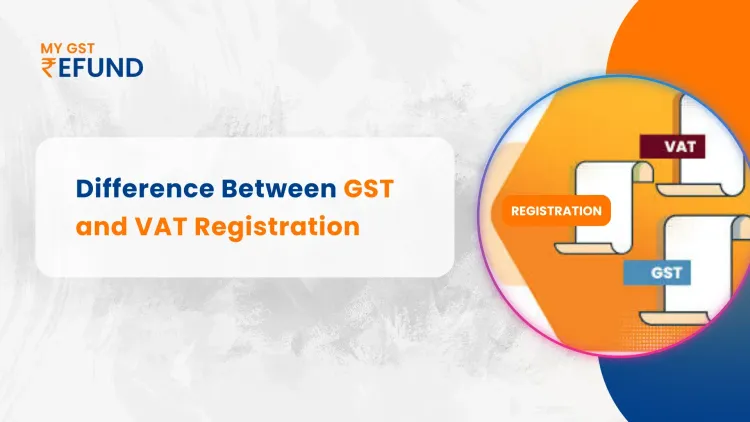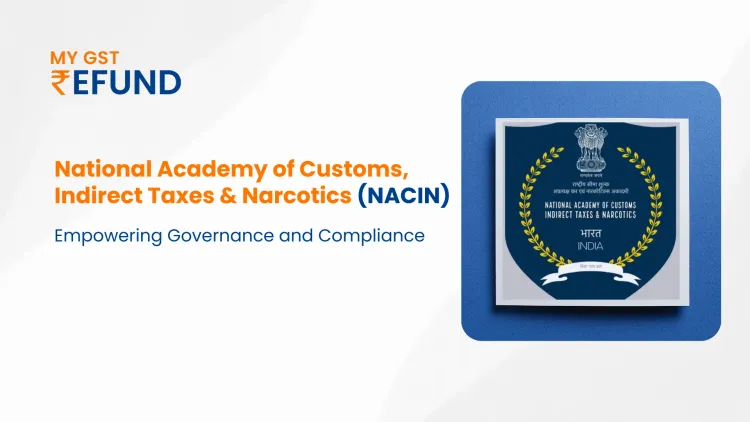GST Refund for SEZ Units (Special Economic Zone)
Published on: Fri Nov 10 2023
The Special Economic Zone (SEZ) scheme in India has been a significant driver of economic growth and export promotion. SEZ units enjoy various fiscal incentives and exemptions, including the Goods and Services Tax (GST). GST is a value-added tax levied on the supply of goods and services, and it's important for SEZ units to understand how to claim GST refunds to optimize their financial operations. In this article, we will delve into the details of GST refund for SEZ units from a financial perspective, covering the process, statistics, and key considerations.
Understanding GST Refund for SEZ Units
In the realm of taxation and economic zones, the Goods and Services Tax (GST) regime in India has brought significant changes, particularly for Special Economic Zones (SEZs) and their constituent units. These SEZs, established to promote economic growth and incentivize investments, enjoy certain exemptions and benefits under the GST framework. One of the key benefits is the facilitation of GST refunds for SEZ units. This article delves into the nuances of GST refunds specifically tailored for SEZ units from a financial perspective.
Eligibility Criteria
Eligibility criteria for Goods and Services Tax (GST) refunds in Special Economic Zones (SEZs) are established to ensure that businesses within these zones can benefit from tax exemptions and refunds in a manner that aligns with the intended objectives of SEZs. The eligibility criteria for GST refunds in SEZs include the following:
1.Operational Location within SEZ: To be eligible for GST refunds, a business must be physically located within a designated SEZ. Only businesses operating within the geographical boundaries of an SEZ are entitled to the benefits and exemptions provided under the GST framework.
2.Registered SEZ Unit: The business should be a registered SEZ unit. Registration with the relevant authorities is mandatory for businesses to conduct operations within the SEZ and avail of GST-related benefits.
3.Export-Oriented Activities: SEZ units must primarily engage in export-oriented activities. The core objective of SEZs is to promote exports and foreign exchange earnings, so businesses within these zones are expected to be predominantly focused on export activities.
4.Supply to Domestic Tariff Area (DTA): While the main focus is on exports, SEZ units can also supply goods and services to the Domestic Tariff Area (DTA). However, the supplies made to DTA are typically subject to Integrated GST (IGST), and refunds may be claimed on such taxes.
5.Compliance with GST Regulations: SEZ units must adhere to all GST regulations, including proper filing of GST returns, accurate record-keeping, and timely payment of GST. Non-compliance can affect the eligibility for refunds.
Types of GST Refunds
In the context of Special Economic Zones (SEZs) in India, there are two primary types of GST (Goods and Services Tax) refunds that SEZ units can claim:
1.IGST (Integrated Goods and Services Tax) Refund: IGST is applicable to the supply of goods and services when they are exported outside of India. SEZ units that engage in export-oriented activities are typically eligible for IGST refunds.
The process for claiming IGST refund involves providing evidence of export, such as shipping bills, and filing for a refund with the GST authorities. This refund can be claimed either through the online GST portal or by filing a physical application.
2. Input Tax Credit (ITC) Refund: Input Tax Credit (ITC) refund is related to the GST paid on inputs and input services used in the manufacturing or provision of goods and services within the SEZ. SEZ units can claim a refund of the GST paid on inputs and input services used for making taxable supplies, zero-rated supplies, or for exports.
The ITC refund process entails filing a refund application with proper documentation, including invoices and records of input tax paid. It is essential for SEZ units to ensure that their suppliers have correctly charged and deposited the GST on the inputs and services supplied to them.
GST Refund Process
The Goods and Services Tax (GST) refund process for Special Economic Zones (SEZs) in India is designed to alleviate the tax burden on their inputs and ensure a seamless export environment. SEZ units can claim refunds on the GST paid on the purchase of goods and services used in their operations. The process involves several steps, and it's essential for SEZ units to understand and adhere to the prescribed procedures to successfully claim their refunds. Below is an overview of the GST refund process for SEZs:
Record-Keeping: SEZ units should maintain detailed records of their transactions, including invoices, shipping bills, and all relevant financial documents. Proper record-keeping is a fundamental requirement for claiming GST refunds.
Eligibility Check: SEZ units must ensure they meet the eligibility criteria for claiming GST refunds, which typically include compliance with GST laws and the utilization of inputs and input services for the authorized operations within the SEZ.
Input Tax Credit (ITC) Accumulation: SEZ units should accumulate Input Tax Credit (ITC) on the GST paid on inputs and input services. This credit can be used to set off the GST liability on the supply of goods and services within the SEZ.
Filing of GST Returns: SEZ units must regularly file GST returns, specifically GSTR-3B and GSTR-1, as per the prescribed timelines. Accurate and timely filing of these returns is crucial for the refund process.
Verification and Documentation: To claim the GST refund, SEZ units need to compile the necessary documents, including invoices and shipping bills, to support their refund application. These documents will serve as evidence of export and compliance.
Filing Refund Application: SEZ units need to file the refund application on the GST portal, typically using Form GST RFD-01. The application should specify the amount of the refund, the nature of the refund (IGST or ITC), and the relevant tax periods.
Scrutiny by GST Authorities: The GST authorities will scrutinize the refund application, verify the documents, and check for compliance with GST laws and procedures. Any discrepancies or issues may result in a delay or rejection of the refund claim.
Refund Processing: Once the application is approved, the refund amount will be processed. This amount can be credited to the bank account specified by the SEZ unit in the application.
Timelines and Communication: SEZ units should closely monitor the progress of their refund application and adhere to the timelines specified by the GST authorities. Any queries or requests for additional information will be communicated during the processing.
Reconciliation: SEZ units should regularly reconcile the refund amounts received with their GST returns and financial records to ensure accuracy and compliance.
It's important for SEZ units to be meticulous in adhering to the GST refund process and maintain compliance with GST regulations. Errors or discrepancies can lead to delays or denials in refund claims. By following these steps and keeping comprehensive records, SEZ units can successfully claim their GST refunds, contributing to their financial well-being within the SEZ framework.
Financial Implications and Benefits for SEZ Units
The availability of GST refunds presents significant financial advantages for SEZ units. These refunds impact working capital, reduce operational costs, and enhance competitiveness, thus positively affecting the financial health and growth prospects of these units.
Related Posts





